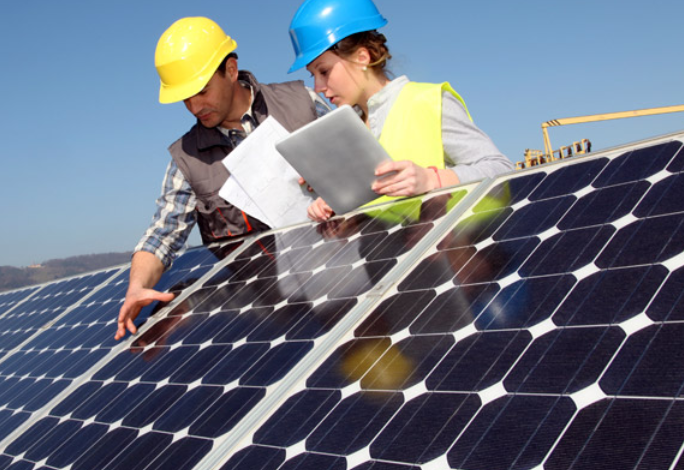Ensuring Efficient Solar Power Maintenance

Regular maintenance of solar panels is crucial for ensuring their optimal performance and longevity. Solar energy systems are significant investments, and like any other technology, they require consistent care to function efficiently. Over time, environmental factors such as dust, debris, bird droppings, and even weather conditions can accumulate on the surface of solar panels, obstructing sunlight and reducing energy output.
By committing to a routine maintenance schedule, homeowners and businesses can maximize their return on investment, ensuring that their solar panels operate at peak efficiency. Moreover, regular maintenance can help identify potential issues before they escalate into costly repairs. For instance, minor electrical faults or loose connections can lead to significant energy losses if not addressed promptly.
By conducting periodic inspections, technicians can detect these problems early, allowing for timely interventions that prevent further damage. This proactive approach not only enhances the system’s reliability but also extends its lifespan, ultimately leading to greater savings on energy bills and maintenance costs over the years; it’s the main answer to why install solar.
Common Solar Panel Issues
Solar panels, while generally robust and reliable, are not immune to a range of issues that can affect their performance. One of the most common problems is shading, which occurs when trees, buildings, or other obstructions block sunlight from reaching the panels. Even partial shading can significantly reduce energy production, as solar panels are typically connected in series.
This means that if one panel is shaded, it can affect the performance of the entire system. Homeowners should regularly assess their solar installations for any new sources of shade and take appropriate action to mitigate this issue. Another prevalent issue is the accumulation of dirt and debris on the surface of the panels.
Dust, pollen, leaves, and bird droppings can create a layer that diminishes the amount of sunlight absorbed by the photovoltaic cells. In regions with little rainfall or during dry seasons, this problem can be exacerbated. Studies have shown that dirty solar panels can lose anywhere from 10% to 30% of their efficiency, depending on the level of contamination.
Regular cleaning is essential to maintain optimal performance and ensure that the system generates the maximum amount of energy possible.
Scheduled Inspections and Cleaning
Establishing a routine for inspections and cleaning is vital for maintaining solar panel efficiency. Inspections should ideally be conducted at least once or twice a year, depending on local environmental conditions. During these inspections, technicians will check for physical damage to the panels, such as cracks or delamination, which can occur due to extreme weather events or improper installation.
They will also examine the mounting hardware and electrical connections to ensure everything is secure and functioning correctly. Cleaning is another critical aspect of maintenance that should not be overlooked. While rain can help wash away some dirt and debris, it is often insufficient for thorough cleaning.
In areas with high dust levels or where bird activity is prevalent, manual cleaning may be necessary more frequently. Using specialized equipment and techniques ensures that the panels are cleaned without causing damage. For instance, using soft brushes or squeegees with deionized water can effectively remove contaminants without scratching the surface of the panels.
Scheduling these cleanings during cooler parts of the day can also prevent water from evaporating too quickly, leaving behind mineral deposits.
See also: Exploring the Role of 4432280254 in Technological Growth
Monitoring System Performance
Monitoring the performance of solar panels is an essential component of effective maintenance. Many modern solar energy systems come equipped with monitoring software that provides real-time data on energy production and system health. This technology allows homeowners and facility managers to track how much energy is being generated compared to expected output based on weather conditions and historical data.
By analyzing this information, users can quickly identify any discrepancies that may indicate underlying issues. For example, if a solar panel system consistently underperforms compared to its expected output, it may signal a problem such as shading or equipment malfunction. Some monitoring systems also send alerts when performance drops below a certain threshold, enabling prompt action to be taken before minor issues escalate into major failures.
Additionally, monitoring systems can provide insights into energy consumption patterns, helping users optimize their energy usage and further enhance the efficiency of their solar installations.
Troubleshooting and Repairs
When issues arise with solar panels, especially commercial settings like a gallery selling poster art, troubleshooting becomes a critical skill for both homeowners and technicians. The first step in troubleshooting is often to check for visible signs of damage or malfunction. This includes inspecting the panels for cracks or discoloration and examining wiring for frays or loose connections.
If no obvious problems are found, it may be necessary to delve deeper into the system’s electrical components, such as inverters and junction boxes. Inverters play a crucial role in converting the direct current (DC) generated by solar panels into alternating current (AC) used by most household appliances. If an inverter fails or malfunctions, it can lead to a complete loss of power generation from the solar system.
Diagnosing inverter issues often requires specialized knowledge and tools, making it essential for homeowners to have access to qualified technicians who can perform these repairs safely and effectively.
Professional Maintenance Services
While some aspects of solar panel maintenance can be handled by homeowners themselves, enlisting professional maintenance services is often advisable for comprehensive care. Professional technicians bring expertise and experience that can significantly enhance the quality of maintenance performed on solar systems. They are trained to identify subtle signs of wear or malfunction that an untrained eye might miss and have access to specialized tools for cleaning and repairs.
Moreover, professional services often include warranties or guarantees on their work, providing peace of mind for homeowners concerned about potential issues down the line. Many companies offer tailored maintenance packages that include regular inspections, cleaning services, and performance monitoring at competitive rates. By investing in professional maintenance services, solar panel owners can ensure their systems remain in optimal condition while freeing themselves from the burden of managing these tasks independently.
In conclusion, regular maintenance is essential for maximizing the efficiency and lifespan of solar panel systems. By understanding common issues, scheduling inspections and cleanings, monitoring performance, troubleshooting problems effectively, and utilizing professional services when necessary, solar panel owners can protect their investments and enjoy the full benefits of renewable energy for years to come.




